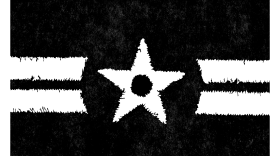We don't often get to hear the police speak candidly, but this week's Criminal episode offers the personal perspective of former Dallas Police Chief David Brown. He was chief during the 2016 shooting of Dallas police officers days after protests of the police-involved shootings of Alton Sterling and Philando Castile.
Usually we hear police chiefs only in sound bites at press conferences, or reading an official statement. In this episode, Phoebe Judge sat down with Brown to talk about what he learned in his 33-year career with the department.
Brown had dreamed of becoming a police officer and cleaning up his neighborhood. He grew up in a predominantly African-American community in Dallas. He wanted to fight crime and protect his own neighborhood.
"I was that naive. I was going to come in, swoop in like Superman, and in a couple years make my whole neighborhood safe," Brown said.
He was, in fact, assigned to his neighborhood, and the job became deeply personal.
"My mother lived there. All of my friends lived there. And their parents lived there. These were people I knew. It was people I was trying to protect," Brown said.
Looking back, Brown feels he was naive. Through his career, he had a few personal tragedies that changed his thinking. The first was early in his career.
Brown's longtime partner Walter Williams was shot on duty. They often rode together and swapped stories at the station. Brown was a crime scene investigator at the time. He was called to a scene late at night, where he knew an officer had been shot. He saw a bloodied pair of glasses he recognized as Walter's.
Brown went to the hospital and comforted Williams' family. It shook him.
He thought about leaving the police force, but he didn't. Instead he worked nearly every job at the department, until ultimately he was promoted to police chief. A few months into his job, came the worst.
He got a call about his son David Jr., or DJ. First, he heard that his son had been in a fight with his girlfriend. Chief Brown was ready to give him relationship advice. Then the whole story unraveled.
DJ had shot and killed a man, and when the police responded, DJ killed an officer. More police arrived, and shot and killed DJ. Chief Brown couldn't reconcile it.
"There's there's no logical way to approach that particular incident that's happening in my life. … And here's the strangest thing about it, is everything you know about yourself and life is stripped away to its core and it's whatever's there that helps you get through," Brown said.
Then came the Dallas shooting. There had been protests all over the country against the recent shootings of Alton Sterling and Philando Castile by police. The protests that night in Dallas began peacefully, and organizers were in communication with the local police force.
Chief Brown went home that night, thinking the situation was calm and under control. Then a shooter outside the protests took down 5 police officers, intent on killing as many white officers as possible. The shooter made threats of bombs placed around the city, and it became a situation of negotiation until the shooter was killed.
Chief Brown was responsible for the aftermath. He moved between national press conferences and the hospital bedsides of wounded officers. He comforted the families of officers who had died, much like he had at the beginning of his career with his friend Walter Williams' family.
You can hear more about Chief Brown's story on this week's episode of Criminal.











